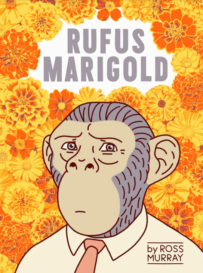Stop Online Piracy Act Threatens Freedom of Speech
It may have slipped under your radar, due to the relative lack of press coverage, but there is a bill being debated in the US Senate at the moment that has massive repercussions for the way the Internet operates in the future, and consequently for free speech in general. The bill, backed by US giants Viacom, AOL, Nike, among many others, is called the Stop Online Piracy Act, or SOPA for short.
Now, piracy is a contentious issue. A few artists (such as Neil Gaiman) claim to love piracy, that it has enabled them to reach a far wider audience, and that their book sales have increased as a direct result. Most artists, especially the lesser known ones, point out that it really makes it harder for them to scrape a living when people are just getting to know them, and getting their work for free. They do have a point. But even if we accept that we want to reduce piracy, the way that SOPA proposes to do it is unjustifiable.
If passed, SOPA would empower the US Attorney-General to order ad services (e.g. Google) and payment processing services (e.g. PayPal and Visa) to cease their services to websites, based on the accusation of copyright infringement only. The Attorney-General could also order search engines to block the website, effectively shutting it down.
Is all this sounding familiar? These are precisely the powers wielded by the government in China, often criticised for its suppression of free speech and political dissent by politicians in liberal ‘democracies’ like the US.
This proposed legislation would affect even more people than even China’s repressive state machinery does – the whole world would be affected. Because so much of the Internet’s infrastructure is based in the US, and because the terms used in the act are so broad, international domain names .com, .org and .net would be covered by the legislation – domain names that belong to millions of organisations outside US borders.
The way in which copyright infringement is being entrenched as a policing tool is significant as well. Now, I’m not going to go so far as to say we should abolish copyright altogether. It is important to have a way to protect artists and distributors from outright theft. But it’s important to look at the ways in which our legal system empowers corporations to quash creative or dissenting voices. Copyright infringement and libel laws are often used by corporations to take action against individuals that threaten their brand. Mattel in 1997 took action against the Swedish pop group Aqua for their song Barbie Girl. The song was hardly a pinnacle of Scandinavian cultural achievement, but even so, it’s worth mentioning to point out the use of the law to protect the brand, rather than to prevent theft. The high-profile “McLibel” case saw McDonald’s suing for libel two environmental activists who distributed leaflets critical of their working practices.
There’s something deeper going on here. Since it began, the Internet has been a gloriously anarchic place. It’s been a realm where people have done what they wanted, and, yes, has offered anonymity to those who seek to do others harm. But it would appear the vast majority of people don’t want to do each other harm. They want to share their work, creativity and insights (Wikipedia, YouTube, WordPress, Soundcloud). They want to be generous with their money (Kickstarter). Services like eBay, Gumtree, and Freegle are built on the assumption that people are honest – in short, that they don’t need to be policed, controlled and dictated to.
At the moment the Internet is a relatively free space, standing in contrast to the offline world that sees increasing levels of policing and surveillance. The corporations that are backing SOPA may claim that they want to protect art, but they threaten to produce legislation that could be used to repress artistic creativity and freedom.
Betsy Barkas
Tags: AOL, Barbie Girl, bb, eBay, free speech, Freegle, Gumtree, Kickstarter, Mattel, McDonald’s, Neil Gaiman, Nike, PayPal, political dissent, SOPA, Soundcloud, Stop Online Piracy Act, Viacom, Visa, Wikipedia, WordPress, YouTube
This entry was posted on Thursday, December 8th, 2011 at 11:19 pm and is filed under Articles, Articles, Honest Publishing Blog, Writings. You can follow any responses to this entry through the RSS 2.0 feed. You can skip to the end and leave a response. Pinging is currently not allowed.














